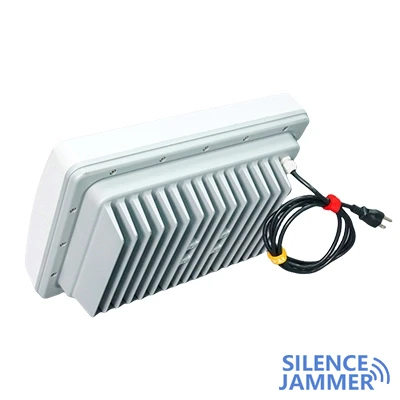With the development of science and technology, wireless communication technology has become an indispensable part of our daily life. The popularity of mobile phones, Wi-Fi and other wireless devices allows people to obtain information and communicate anytime and anywhere. However, some places use signal jammers to block wireless signals to protect privacy or prevent interference. So, as a public place, will the hotel use signal jammers?

The principle of signal jammer
A signal jammer is an electronic device that works by emitting electromagnetic waves of the same frequency as the target signal to interfere, thereby blocking the normal transmission of the target signal. Specifically, when the signal jammer is turned on, it will generate strong interference signals in a specific frequency band, making it impossible for wireless communication devices in that frequency band to receive or send signals normally.
Common signal jammers can block mobile phone signals (such as GSM, CDMA, 3G, 4G, 5G, etc.), Wi-Fi signals (such as 2.4GHz and 5GHz frequency bands), and GPS signals. These jammers are often used in security, exams, conferences and other places where privacy needs to be protected or interference avoided.
by law
In most countries and regions, the use of signal jammers is severely restricted or even prohibited. This is because signal jammers not only interfere with legitimate wireless communications, but may also impact emergency services communications. In the United States, the Federal Communications Commission (FCC) prohibits the unauthorized use of signal jammers, emphasizing that such devices may interfere with public safety communications networks and endanger people's lives and property.
Possibility of using signal jammers in hotels
Although signal jammers have some application value in certain situations, the use of such devices in hotels is not common for the following reasons:
1. Legal risks
As mentioned before, most countries have strict legal restrictions on the use of signal jammers. As a public service place, hotels will not only face legal risks if they use signal jammers without authorization, but may also have a negative impact on their reputation.
2. Customer experience
The competitiveness of modern hotels is not only reflected in hardware facilities and service quality, but also includes good wireless network coverage and communication experience. If the hotel uses signal jammers, it will seriously affect customers' communication needs, lead to a decrease in customer satisfaction, and then affect the hotel's market competitiveness.
3. Emergency
In hotels, keeping communications open is critical to responding to emergencies. Signal jammers may interfere with alarm systems, emergency calls and other security measures, creating safety hazards for residents.
Legal applications of signal jammers
Although the use of signal jammers in hotels is uncommon, there are still legitimate applications for signal jammers in certain situations. For example:
1. Examination venue
In order to prevent candidates from cheating, many test centers will use signal jammers during the exam to prevent candidates from making improper communications through mobile phones or other wireless devices.
2. Prison
In prisons, in order to prevent prisoners from communicating with the outside world through mobile phones and engaging in illegal activities, prison management departments may use signal jammers to block mobile phone signals.
3. Confidential meeting
In some meetings or activities that require high confidentiality, in order to prevent information leakage, the meeting organizer may use signal jammers to block wireless signals to ensure that the meeting content is not eavesdropped by the outside world.
How to detect signal jammers
For ordinary users, how to determine whether a signal jammer is used in a certain place? Here are some simple ways:
1. Signal strength
If you find that the mobile phone signal suddenly becomes very weak or even no signal at all in a certain place, and the surrounding environment does not have obvious signal shielding facilities (such as basements, thick walls, etc.), there may be a signal jammer.
2. Multi-device testing
If you find that your cell phone signal is poor, you can try using another brand or model of cell phone to test. If multiple devices are experiencing the same problem, it may be due to interference from the signal jammer.
3. Wireless network
Signal jammers not only affect mobile phone signals, they may also affect Wi-Fi signals. If you find that the Wi-Fi signal is getting poor in a certain location, consider whether there is a signal jammer.
To sum up, hotels generally do not use signal jammers, mainly due to factors such as legal risks, customer experience and security considerations. However, there are still legitimate uses for signal jammers in certain situations. For ordinary users, if they suspect that a signal jammer is used in a certain place, they can make a judgment by detecting signal strength and multi-device testing. While enjoying the convenience brought by modern technology, we should also respect laws and regulations and use wireless communication technology rationally.


